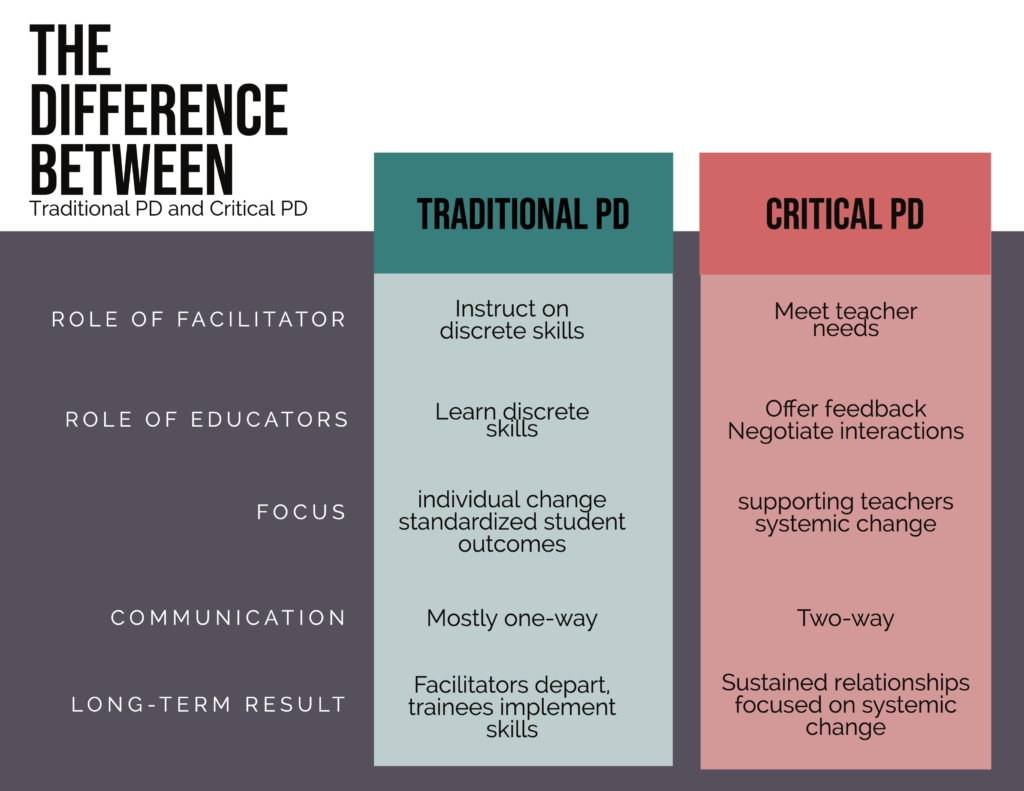
Design professional learning based on needs assessments and frameworks for working with adults to support their cultural, social-emotional and learning needs.
ISTE STANDARDS FOR COACHES
Designing Professional Learning
It’s important to take into account the cultural and social emotional backgrounds of educators when training addresses topics at the intersection of students’ social emotional well-being and educators’ diverse experiences and philosophies. Creating safe and nurturing environments for LGBTQIA+ youth, who are a particularly vulnerable population, is one such topic. I wrote about the importance of understanding the diverse cultural and emotional positions of staff when engaging in training on this topic in a 2021 post titled Meet Me Where I’m At.
These backgrounds include:
- Staff with moral and religious concerns
- Staff who believe LGBTQ+ issues don’t belong in schools
- Staff with limited exposure
- Staff who are allies, but have a victim mindset
Meeting these diverse groups where they are at and adapting training to fit their specific situations makes it possible to better develop a unified supportive network requires different approaches and adaptations
Adults working in educational settings come together with a shared vision of supporting and nurturing learners. Despite their shared vision, it is erroneous to assume that these adults are a monolith. Instead, professional learning designers need to meet the widely diverse cultural, social-emotional and learning needs of adults in their training. In February, 2022, I wrote about the importance of using feedback to direct professional learning.
Critical Approaches to Professional Development (CPD) is one model of professional development that incorporates feedback organically. CPD reframed the power structure of professional development so that the attendees of conferences shape its content and structure and uses a continuous feedback loop to ensure that sessions are useful and adapted to everyone’s needs.

Reflecting on feedback by professional development attendees allows trainers to learn about their specific and individual experiences and needs, which results in learning designs that meet needs better.